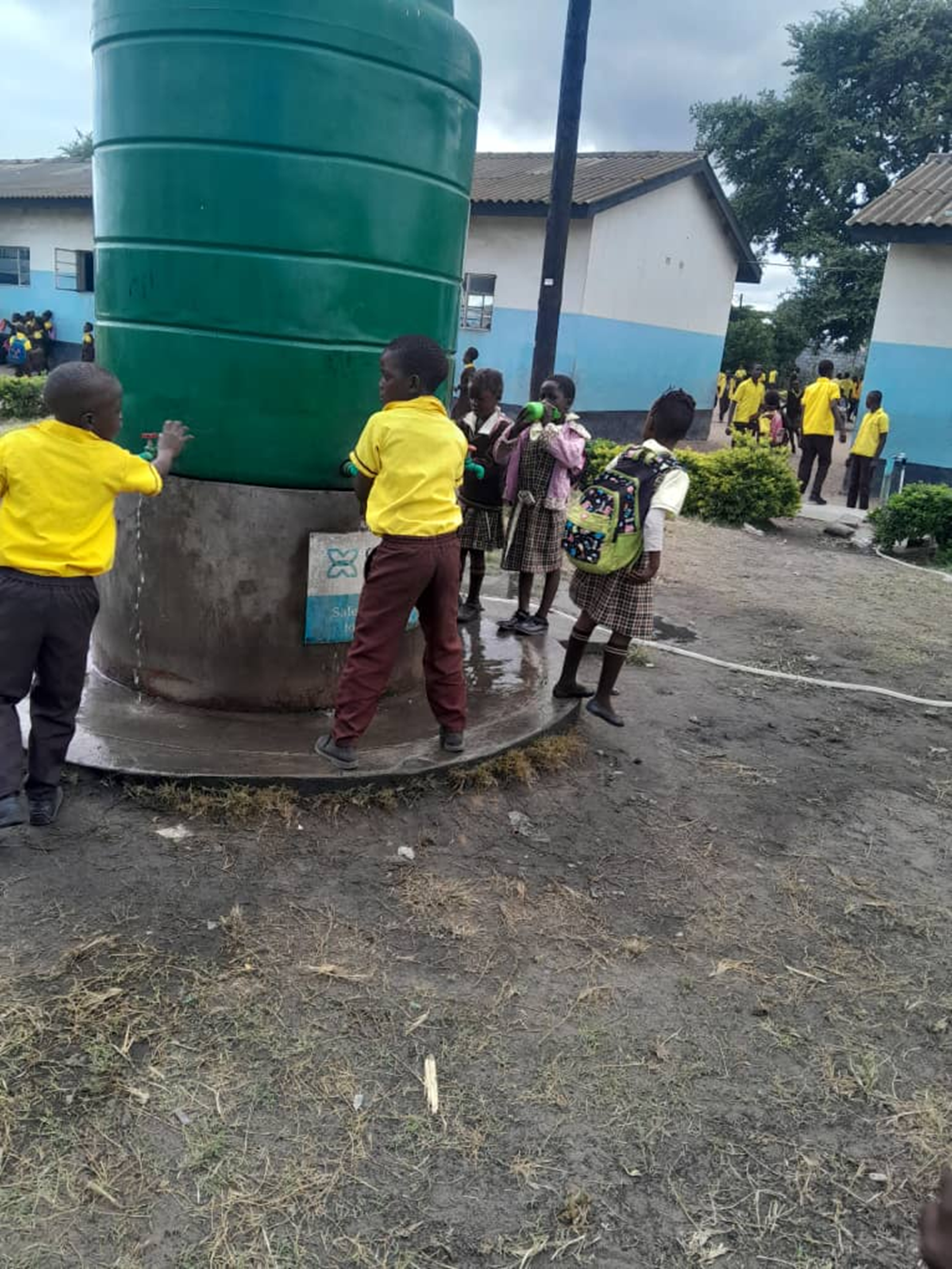
City populations are exploding, pushing people closer together and straining basic services beyond their capacity. This urban growth is fuelled primarily by low-income migrants landing in cash-strapped cities that prioritize the wealthiest communities while routinely overlooking the poorest. Among the greatest needs of these underserved communities, according to UNICEF, are water, sanitation, hygiene (WASH) services, including menstrual hygiene. The situation is particularly dire in school settings where inadequate WASH facilities contribute to the spread of waterborne diseases, contributing to malnutrition and stunted growth, impairing children, physical and cognitive development. This often leads to poor educational outcomes. Compared to privately owned schools, public schools lack clean drinking water and proper WASH facilities. As of 2024, approximately 21 percent of schools in Zambia lacked basic water access, whilst 17 percent lacked basic sanitation facilities:
1 . The lack of proper WASH facilities in schools affects attendance and educational outcomes, particularly for menstruating girls, leading to increased absenteeism and hindering
educational progress. Many girls, particularly in rural areas and public schools in urban areas, face challenges in managing menstruation due to inadequate facilities and resources, leading to unsanitary practices and health problems. In 2020, only 45.8 percent of schools provided menstrual health education, and 24.3 percent supplied sanitary pads.
2 . Studies show that girls in Zambian schools miss an average of 36 school days per year due to inadequate menstrual health management support
3 . The biggest barrier to girls using safe, comfortable, and effective sanitary products is affordability at the household and school levels. In response to these challenges, Splash International, a U.S.-based non-profit organization are in the process of launching a city-wide WASH in schools program in Zambia aimed at levelling the playing field and fostering equity for youth in general, and girls in particular, in under-resourced cities
around the world where urban growth is fast outpacing city services, further distancing the poorest households from equitable services. Splash is at the forefront of a growing movement to ensure that
children in urban poverty have the resources they need to thrive and reach their full potential through the design of child-focused WASH solutions, including on menstrual health and hygiene (MHH), with governments in some of the world’s biggest cities.
The survey employed a cross-sectional, school-based survey design incorporating both a quantitative structured survey and observations of school infrastructure, WASH facilities, and behavioural practices of learners. In addition, water samples were collected from the schools’ primary water sources and tested for their quality. Initial document review was conducted based on the project documents received from Splash. Quantitative data were collected through structured interviews administered in 318 schools (Lusaka 147, Ndola 85, and Kitwe 86) through electronic gadgets. Data on enrolments was collected in an additional 10 schools, which were initially combined, but were later split into individual schools. The survey also employed structured observations, and water quality tests were conducted from the 45 randomly selected schools (15 schools from each city) of the 318 that were visited.

